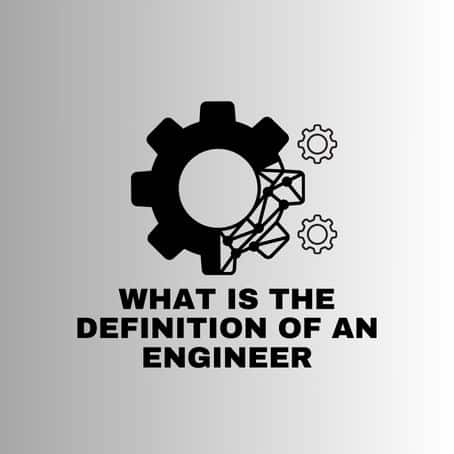How Did Engineering Emerge?
The first engineers came about because people had needs and they needed to find solutions for these needs. There existed several problems within communities and hence the modern day engineer was created. Examples of great ancient civilizations would be the romans, mayans, or even the Chinese.
The Latin word “ingenium,” which denotes talent, serves as the root of the term “engineer.” According to history, engineers were experts who devised fighting engines including the catapult and siege engines. The job description eventually grew from its military roots to include civil engineering, mechanical engineering, and more. Engineers of today are involved in a wide spectrum of activities including dealing with climate change, healthcare, artificial intelligence alongside other emerging technologies.
Engineer Qualifications
Each engineering department specializes in different subjects but they share some qualifications and skills:
Analytical Reasoning
Engineers often understand how to resolve problems by looking at them systematically and breaking down complex issues into smaller parts. This is important as this enables them to understand the problem better and be able to come up with a lasting solution.
Imagination and Development
Designing new solutions and even enhancing current systems entails Engineering which means having a creative mindset. It involves coming up with new ideas and being willing to try out different things.
Strong Fundamentals
Mathematics, Physics, and other such sciences are of vital necessity to have a strong background in for engineers. I mean – how else would they be able to do calculations and models to prove that their design is possible?
Problem-Solving Skills
Engineering for most people evokes the stereotypical image of designing and constructing structures. They take on challenges in a systematic way by combining academic theories with practical experience they have gained.
Ethics and Responsibility
t is no secret that most engineering projects influence society in one way or the other. Every decision they make bears ethical aspects such as the environmental impact and safety measures that they are designed to ensure.
Collaboration and Communication
The modern trend in engineering is that one project brings together people with different specializations. It is important for engineers to verbally present their ideas and interact with other specialists as well.
Disciplines of Engineering
Polymer Engineering: It contains the same ingredient of chemistry, physics, biology together whiling concentrating on the strategies for becoming more proficient in the synthesis of newly emerging polymers. On the other end of the spectrum, chemical engineers are instrumental in the healthcare business, energy, food industry, etc.
Digital Engineering: This area of engineering is skilled at the invention, design and the maintenance of the entire software systems So Swarpet is only interested in applications of technology or systems that relate to software say cloud technologies, telecom smart phones multiple sites and systems.
Systems Engineering Biomedical: Engineering techniques are combined with other medical and biological sciences to achieve the development of prosthetics and other diagnostic devices, as well as biocompatible materials used in healthcare.
Safety Engineering Environmental: Concerns the solutions of such problem as water pollution, air pollution use of substances of daily life and many others. Environmental Engineers are indispensable factor in slowing climate change and restoring of ecological equilibrium.
Society and Engineers Role in it
The contribution of engineers is irrefutable especially when it comes to implementing the inventions and improving the conditions within the world. The influence of these people can be seen in the following issues: The very issue of infrastructure development: Societies and Nations are Engineered by engineers 擁overhaul their framework of physical: buildings or rather construction constituting the transportation, urbanization and all that all construction consolidates or rather facilitates socio economic development and integration of communities.
Technological Modernization: Engineers develop new technology that opens doors in areas such as renewable energy, AI and even space. Such changes are revolutionary, and new possibilities for humankind are created.
Health Safety and Security: Engineering methods provide the required safety and robustness of systems such as designing safe buildings and secure networks.
Environmental Sustainability: Engineers work on green technology and sustainable development to meet the needs of the environment. This encompasses renewable energy systems, green buildings, and waste management.
Medical Technologies: Biomedical engineering makes great change in human life from the development of robot organ to complex imaging systems. These advances will improve the quality of care and enhance the human life span.
Challenges and Ethical Considerations
But of course, there are also drawbacks to the profession. For example, an ordinary engineer encounters such complex technical, social, and ethical issues on a day-to-day basis. Some of the key challenges include the following:
The Trade-off between Risk and Innovation
Engineers deal with new technologies and must consider how beneficial the technology is when coupled with its risks and uncertainties.
inequity and Inequality
Engineering approaches must be inclusive to ensure that all groups, including disadvantaged communities are ‘leapfrogged’ with the current innovations.
Sustainability
Engineers are among the leaders in the battle against climate change and for sustainable development. But these don’t come easy as it involves economic progress while protecting the environment.
Protection of Ethical Values
Engineers are like all of us, they are subject most of the time to ethical issues such as making a decision in favor of making more profit and not ensuring safety or considering the interests of different stakeholders. It is obvious that if ethical values are not put into consideration and are ignored, public trust cannot be sustained.
The Engineering Profession in the Next Era
With development in technology comes the change in the job roles of engineers. The most interesting fields that engineers may consider venturing into include nanotech, quantum computing, and renewable energy. Engineers will also be actively engaged tackling issues like climate change, urbanization and food security.
There is no denying that the ever growing levels of artificial intelligence as well as automation are changing the face of engineering enabling better and easy ways to design and manage projects. At the same time, it would be appropriate to mention that these create the issue of job cuts due to these advancements and more importantly automated systems, the moral issues these cut across.
What are the 7 types of engineers?
There are several types of engineers based on traditional disciplines. Following is the brief overview of the 7 major types of engineers.
Civil Engineers
- Focus: Construct and design basic infrastructures such as highways, bridges, social buildings, dams, tunnels, etc.
- Subfields: They are further specialized in Structural, environmental, geotechnical, transportation engineering.
Mechanical Engineers
Focus: Interested in Design of machines and machinery systems, development and maintenance of the designed/machinery systems.
Subfields: Can specialize further in Robotics, thermodynamics, automotive and aeropace engineering.
Electrical Engineers
- Focus: Dealing with electric systems such as power generation equipment, electrical circuits, and other electronic devices.
- Subfields: Electric systems, power systems, electric telecommunications, control systems, and other electronic equipment.
Chemical Engineers
Focus: Building and awareness of chemical processes of commodities production starting from root material.
Subfields: Can specialize further in process engineering, materials science, and biochemistry.
Software Engineers
- Focus: Any activity related to design and development of application systems and their annexes maintenance.
- Subfields: Artificial Intelligence and Cyber Security, Web Development, Systems Programming for computer applications.
Aerospace Engineers
Focus: Work progressively on the development of aircraft, spacecraft, satellites, missiles and their components.
Subfields: Will specialize in aerodynamics, propulsion, avionics and systems engineering.
Industrial Engineers
Focus: Design and production of jewelry items and optimization of other complicated systems including processes, materials and labor.
Will specialize in supply chain management, operations research, and qualitative assurance.

